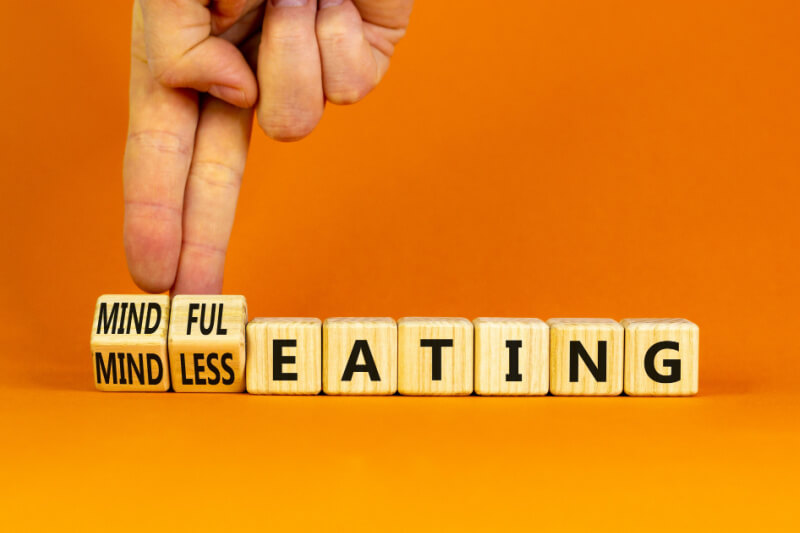Many individuals consciously or unconsciously turn to food for comfort at some emotionally weakest moments. Many everyday life circumstances can cause stress or anxiety that may lead to overeating. The strongest food cravings and emotional eating can also ruin your weight-loss efforts.
What you need to know:
Individuals have a physical and psychological relationship with food. The type of foods you eat, your eating habits and behavior, and your desire for stress relieving food determine the former. The latter is based on the emotions you attach to food, how you use food for reasons other than relieving stress, or how food relates to your body image. A persistent and ongoing secretion of stress-causing cortisol hormone into your bloodstream can also affect your appetite.
Why do people stress eat?

People tend to emotionally binge-eat high-calorie fatty, junk, and sweet foods to suppress certain negative emotions, such as stress, anger, fear, sadness, depression, and loneliness. Food often serves as a distraction. People’s emotions can become so tied up with their eating habits that their first impulse under emotional distress is to eat whatever they can lay their hands on. This can lead to an unhealthy cycle that can harm your health.
Why is stress eating bad for you?
Like all bad habits, stress eating is a vicious cycle that can impact your mental and physical health, leading to:
- Weight fluctuations
- Increased abdominal fat
- Excessive fatigue
- Cramping, stomach pain, or other gastrointestinal issues
- Feeling out of control
- Isolation
Stress with emotional eating can lead to the risk of diseases like diabetes, hypertension, and heart conditions. And while cortisol levels increase due to stress, there could be a considerable rise in blood glucose, cholesterol, and triglyceride levels, accumulating arterial plaque and coronary artery disease. An increase in cortisol can also impact metabolic functions, making weight loss even more difficult.
Signs of stress impacting your body, like insomnia, muscle tension, muscle pain, and migraines, are identifiable. But your heart health begins to suffer when it is linked to emotional eating and remains untreated for long periods.
Ways to manage stress eating
Let us look at a few ways in which you can manage stress eating:
- Practise intuitive eating: Ask yourself whether your hunger is natural and physical or emotional. If you have eaten only a while ago and don’t have a rumbling stomach, you are probably not hungry. The craving will pass eventually. Having a hunger reality check also helps keep your weight in check.
- Find healthier options to binge eat: Opt for a low-calorie, low-fat stress relieving food, such as some dry fruits, unbuttered popcorn, or fruits with peanut butter. This combination of carbohydrates, protein, and healthy fat can help satiate your hunger.
- Keep a food diary: Write down everything you eat throughout the day, along with the time and your hunger levels, to track your eating patterns. Over time, these records can help reveal the connection between a bad mood and unhealthy food. It will also help you set fitness goals to manage your weight. Practise mindful eating and watch your portion size. When you are calm and focused, you make smarter and healthier lifestyle choices and enjoy stress-relieving food for mental health. Slow down and pay attention to what and how you eat.
- Find a healthy behavior: Distract yourself and substitute a healthier behavior or activity to manage stress. Take a walk in nature, listen to soothing music, practise yoga, deep breathing, or mindfulness meditation to calm your mind, do gardening, or journal to vent your feelings. Sustainable stress relievers include healthy habits, like getting adequate sleep and following a nutritious diet.
- Speak to someone: Instead of using food as a numbing strategy to create a buffer between yourself and the feelings you are experiencing, it is advisable to talk to a close kin or friend. If stress and anxiety persist, reach out to a therapist or counselor.
Stay tuned to the Activ Living Community. Keep up to date with the latest health tips and trends through expert videos, podcasts, articles, and much more in nutrition, fitness, mindfulness, and lifestyle conditions like Asthma, Blood Pressure, Cholesterol, and Diabetes.
You may also be interested in the following blogs:
- How Can Stress-Relieving Foods Help Improve Your Mental Health?
- The Ultimate Guide To Food Safety: 4 Expert Tips You Should Follow
Popular Searches
How to lower blood pressure | Fruits good for liver | Unhealthy foods | Ragi Benefits | Basal Metabolic Rate | Acupressure points for High Blood Pressure | Ayurvedic medicine for blood pressure | How to control cholesterol at home | Homeopathy for Asthma | Biological Age | Home remedies for TB | Natural beta blockers | Negative effects of internet | Types of walking | Blood pressure calculator | Blood sugar calculator | BMI Calculator





 1800-270-7000
1800-270-7000









